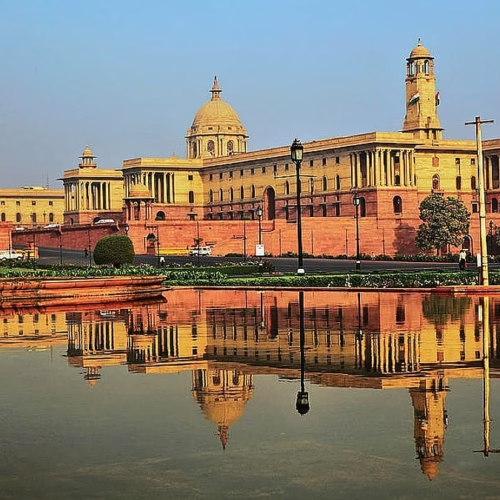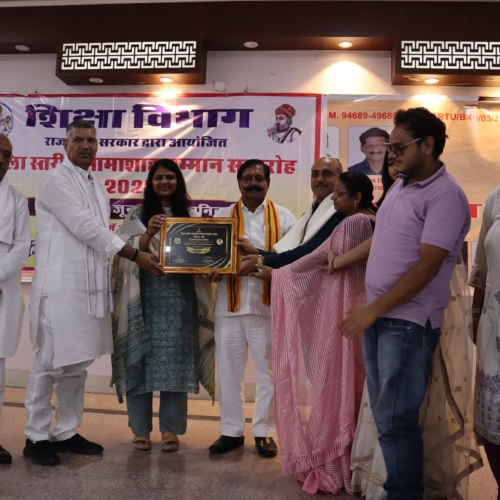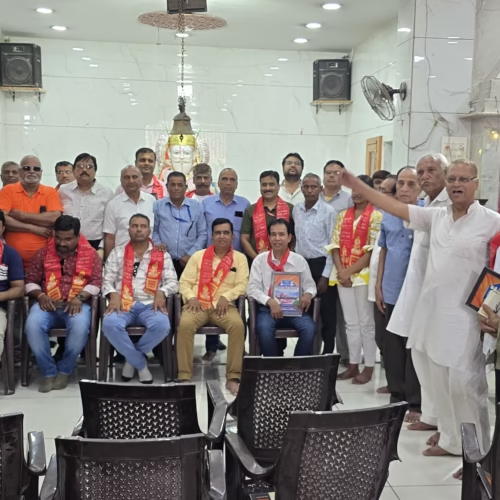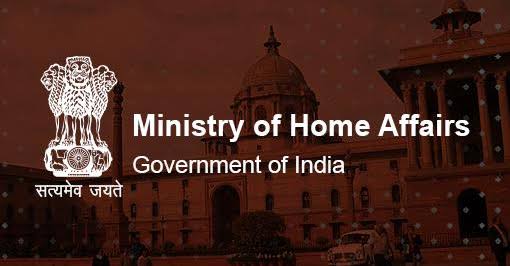GOVERNMENT ATTACHES HIGH DEGREE OF IMPORTANCE TO PREVENTION AND COUNTERING OF THE CRIME OF HUMAN TRAFFICKING
The Government of India attaches high degree of importance to the prevention and countering of the crime of human trafficking, especially women and children. Section 143 of the Bharatiya Nyaya Sanhita (BNS), 2023 provides penal provisions for strict punishment for any offence of human trafficking. Section 144(1) of the BNS provides for strict punishment for the offence of sexual exploitation of trafficked children. The punishment for such offences range between five years to life imprisonment.
Special provisions have also been, inter-alia, made in the Bharatiya Nyaya Sanhita, 2023 for dealing with crimes against women and children. In particular, Sections 95 to 99 of the BNS deal with offences against children and provide for strict punishment to the offenders. These sections have provisions for dealing with the offence of hiring, employing or engaging a child to commit an offence; procuration of child; and selling/buying of a child for purposes of prostitution, etc. The punishment for these offences range between three years to fourteen years.
In addition, Section 139 of the BNS provides punishment against kidnapping or maiming of a child for the purposes of begging. Section 141 of the BNS provides punishment for importation of a girl or boy from foreign country for illicit sexual exploitation etc. The punishment for these offences range between ten years to life imprisonment.
This was stated by the Minister of State for Home Affairs, Shri Bandi Sanjay Kumar
in a written reply to a question in the Lok Sabha.
NEW CRIMINAL LAWS
To foster a more victim-centric approach in the criminal justice system, a proviso has been added under section 360 of the Bharatiya Nagarik Suraksha Sanhita (BNSS), 2023 to provide that before withdrawal of prosecution, the Court shall give an opportunity of being heard to the victims. This provision acknowledges and incorporates the concerns of victims, enhancing the overall fairness and responsiveness of the criminal justice process.
This was stated by the Minister of State for Home Affairs, Shri Bandi Sanjay Kumar
in a written reply to a question in the Lok Sabha.
STEPS TO DEAL WITH CYBER CRIMES IN A COMPREHNSIVE AND COORDINATED MANNER
The National Crime Records Bureau (NCRB) compiles and publishes the statistical data on crimes in its publication “Crime in India”. The latest published report is for the year 2022. As per the data published by the NCRB, cases registered under cyber crime head (involving communication devices as medium/target) during the period from 2020 to 2022 are as under:
| Cyber CrimesCases registered | Year | ||
| 2020 | 2021 | 2022 | |
| 50,035 | 52,974 | 65,893 | |
‘Police’ and ‘Public Order’ are State subjects as per the Seventh Schedule of the Constitution of India. The States/UTs are primarily responsible for the prevention, detection, investigation and prosecution of crimes including online transaction frauds and cyber crime through their Law Enforcement Agencies. The challenges of cyber space are many which flow from its vastness and borderless character. The Central Government supplements the initiatives of the States/UTs through advisories and financial assistance under various schemes for capacity building of their LEAs.
To strengthen the mechanism to deal with cyber crimes in a comprehensive and coordinated manner, the Central Government has taken steps which, inter-alia, include the following:
- The Ministry of Home Affairs has set up the ‘Indian Cyber Crime Coordination Centre’ (I4C) as an attached office to deal with all types of cyber crime in the country, in a coordinated and comprehensive manner.
- Seven Joint Cyber Coordination Teams (JCCTs) have been constituted for Mewat, Jamtara, Ahmedabad, Hyderabad, Chandigarh, Vishakhapatnam, and Guwahati under I4C covering the whole country based upon cyber crime hotspots/ areas having multi jurisdictional issues by on boarding States/UTs to enhance the coordination framework among the Law Enforcement Agencies of the States/UTs. Seven workshops were organized for JCCTs at Hyderabad, Ahmedabad, Guwahati, Vishakhapatnam, Lucknow, Ranchi and Chandigarh in 2023.
- The state of the art ‘National Cyber Forensic Laboratory (Investigation)’ has been established, as a part of the I4C, at New Delhi to provide early stage cyber forensic assistance to Investigating Officers (IOs) of State/UT Police. So far, National Cyber Forensics Laboratory (Investigation) has provided its services to State LEAs in around 10,200 cyber forensics like mobile forensics, memory forensics, CDR Analysis, etc. to help them in investigation of cases pertaining to cyber crimes.
- The ‘National Cyber Crime Reporting Portal’ (https://cybercrime.gov.in) has been launched, as a part of the I4C, to enable public to report incidents pertaining to all types of cyber crimes, with special focus on cyber crimes against women and children. Cyber crime incidents reported on this portal, their conversion into FIRs and subsequent action thereon are handled by the State/UT Law Enforcement Agencies concerned as per the provisions of the law.
- The ‘Citizen Financial Cyber Fraud Reporting and Management System’, under I4C, has been launched for immediate reporting of financial frauds and to stop siphoning off funds by the fraudsters. So far, financial amount of more than Rs. 2400 Crore has been saved in more than 7.6 lakh complaints. A toll-free Helpline number ‘1930’ has been operationalized to get assistance in lodging online cyber complaints.
- The Massive Open Online Courses (MOOC) platform, namely ‘CyTrain’ portal has been developed under I4C, for capacity building of police officers/judicial officers through online course on critical aspects of cyber crime investigation, forensics, prosecution etc. along with certification. More than 96,288 Police Officers from States/UTs are registered and more than 70,992 Certificates issued through the portal.
- Till date more than 5.8 lakhs SIM cards and 1,08,000 IMEIs as reported by Police authorities have been blocked by Government of India.
- I4C has imparted cyber hygiene training to 6,800 officials of various Ministries/ Departments of Government of India.
- I4C has imparted cyber hygiene training to more than 35,000 NCC cadets.
- The Ministry of Home Affairs has provided financial assistance to the tune of Rs. 131.60 crores under the ‘Cyber Crime Prevention against Women and Children (CCPWC)’ Scheme, to the States/UTs for their capacity building such as setting up of cyber forensic-cum-training laboratories, hiring of junior cyber consultants and training of LEAs’ personnel, public prosecutors and judicial officers. Cyber forensic-cum-training laboratories have been commissioned in 33 States/UTs and more than 24,600 LEA personnel, judicial officers and prosecutors have been provided training on cyber crime awareness, investigation, forensics etc.
- National Cyber Forensic Laboratory (Evidence) has been set up at Hyderabad. Establishment of this laboratory provides the necessary forensic support in cases of evidence related to cyber crime, preserving the evidence and its analysis in line with the provisions of IT Act and Evidence Act; and reduced turnaround time.
- To spread awareness on cyber crime, the Central Government has taken steps which, inter-alia, include; dissemination of messages through SMS, I4C social media account i.e. X (formerly Twitter) (@CyberDost), Facebook(CyberDostI4C), Instagram (cyberDostI4C), Telegram(cyberdosti4c), Radio campaign, engaged MyGov for publicity in multiple mediums, organizing Cyber Safety and Security Awareness weeks in association with States/UTs, publishing of Handbook for Adolescents/Students, etc. The States/UTs have also been requested to carry out publicity to create mass awareness.
This was stated by the Minister of State for Home Affairs, Shri Bandi Sanjay Kumar
in a written reply to a question in the Lok Sabha.
*****
ARMED FORCES SPECIAL POWERS ACT
There has been considerable reduction in ‘disturbed areas’ under the Armed Forces (Special Powers) Act, 1958. The application of this Act has been removed from most parts of the North Eastern States since 2014, as per the details given below:
- Tripura: completely withdrawn with effect from 27.05.2015
- Meghalaya: completely withdrawn with effect from 1.04.2018
- Assam: completely withdrawn from all the districts except 4
- Arunachal Pradesh: withdrawn gradually and now applicable only in 3 Police Station areas in Namsai district and 3 other districts i.e., Tirap, Changlang and Longding
- Manipur: withdrawn from 19 Police Station areas in 7 districts
- Nagaland: withdrawn partly and now applicable only in 8 districts and 21 Police Station areas in 5 other districts.
The security situation in the North Eastern States has seen significant improvement since 2014. Compared to 2014, there has been 71% reduction in insurgency incidents, 60% decrease in the number of Security Forces personnel deaths and 82% decrease in civilian fatalities in 2023.
This was stated by the Minister of State for Home Affairs, Shri Nityanand Rai
in a written reply to a question in the Lok Sabha.














Add Comment